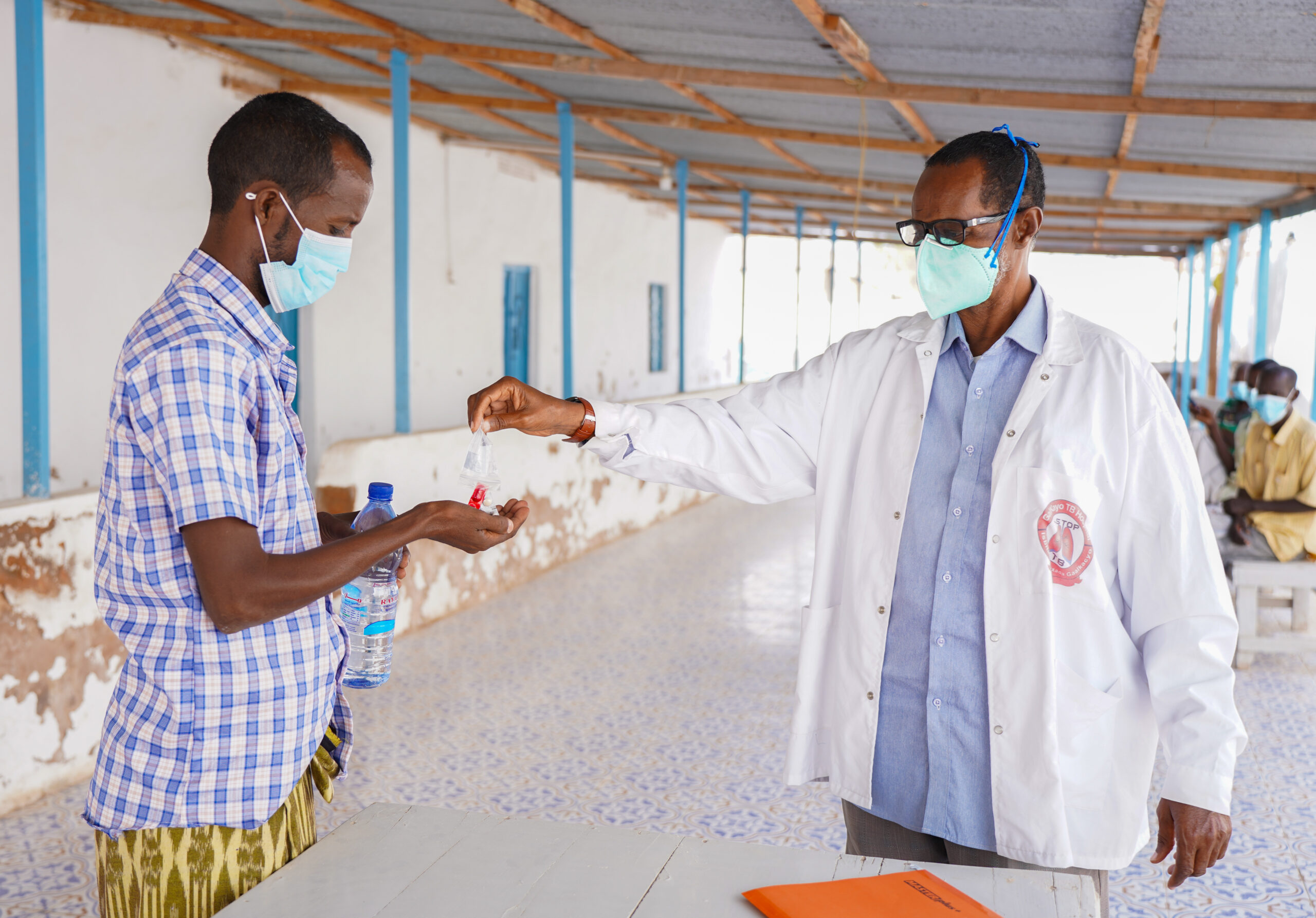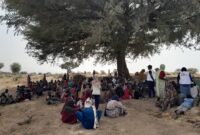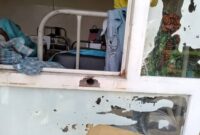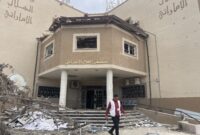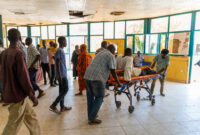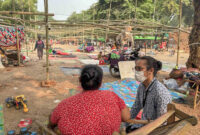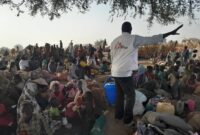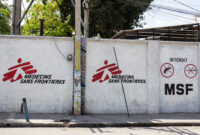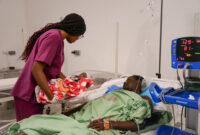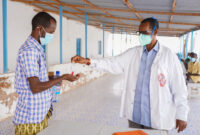“Finding my way back to hope”
What’s it like to be a patient with tuberculosis in Somalia?
My name is Liban and I come from Hilmo village in the Galbuduud region of Somalia. I never imagined I’d find myself far from home, in a hospital, fighting tuberculosis. But here I am, and I want to share my story: how this illness crept into my life, how it changed everything, and how I’m finding my way back to hope.
It started with a sharp pain in my chest, like something pressing down on me, refusing to let go. Then came the coughing – relentless, tearing at my lungs day after day. I knew something was wrong, so I made my way to the hospital. The medical team wasted no time. They took my blood, did an X-ray, and even a CT scan to figure out what was happening inside me. When they sat me down and said, “Liban, you have tuberculosis,” the words hit me hard. I was devastated. Hopelessness washed over me, and I couldn’t see a way forward. All I could think was, how did this happen to me?
Treatment isn’t easy. Every day, I take eight pills… Those morning doses hit me hard.
This wasn’t my first encounter with tuberculosis. A while back, I’d taken medication for six months, swallowing pills every day, believing I’d beaten it. But it came back, stubborn and unyielding. That news shook me – knowing I’d have to start over – but I didn’t give up. Now, I’ve been on a new treatment for 40 days, and I can feel it working. The pain isn’t as fierce, the coughing has eased, and I’m starting to feel like myself again.
When I told my family and friends, their faces fell. They were upset, worried about me and I hated seeing them like that. It was most difficult because I couldn’t work anymore. In Hilmo, I had a life, a way to earn an income but tuberculosis drained every bit of my energy. Coming here for treatment meant leaving that behind and being without work, I have no money to support myself or them. At first, it felt like a dark cloud over us all. But as the medication started to help and they saw me improving, their worry turned to hope. That shift – it’s kept me going.
Treatment isn’t easy. Every day, I take eight pills: three in the morning and five later, after I eat. Those morning doses hit me hard.
Keep reading Liban’s story
I feel weak, hungry, like my body’s struggling to catch up. My chest and lungs ache, and there’s this nagging pain in my joints that I can’t shake. I don’t vomit, thankfully, but the first hours of the day are rough. As time passes, though, I feel better – stronger, more like the Liban I used to be.
One thing caught me off guard: the medication changed the colour of my urine and stool. At first, I panicked, thinking something was wrong. But the doctors explained it’s just a side effect, nothing to fear. It’s strange what you get used to when you’re fighting for your health.
My family, my friends and the doctors here, they’ve all encouraged me.
The joint pain is a constant companion, but it’s not the only hurdle. Being away from Hilmo, from my village and my work, has been one of the hardest parts. Here, I can’t earn a living. I can’t do the things I used to. It’s like tuberculosis didn’t just take my strength – it took my livelihood, too. That’s a heavy weight to carry.
I’m not alone in this, though. A nongovernmental organization stepped in with financial support for the month I’ve been on treatment and that’s been a lifeline. My family, my friends and the doctors here, they’ve all encouraged me, pushing me to keep taking the pills, to stay the course. Their belief in me makes a difference, more than they might know.

After 40 days, I can say I feel much better. The pain’s dulled, my energy’s creeping back, and I’m starting to imagine a future again. It’s not perfect – I wish the treatment gave me more strength, and a little more financial help would ease the burden – but I’m grateful for how far I’ve come.
Focus on healing
If you’re facing tuberculosis, here’s what I’d tell you: don’t wait. Start treatment as soon as you can. And while you’re on it, take care of yourself – rest, eat well, stay out of the wind if you can. Avoid anything that might slow you down. It’s a tough road, but the treatment works if you stick with it. I’m proof of that.
Once I finish this treatment, I want to go back to work, to earn an income again, to rebuild what tuberculosis took from me. That’s my plan, my hope. I believe sticking to the treatment is the key – it’s what’s pulling me through. If I could ask for anything, it’d be more energy from these pills and a bit more support to get me back on my feet. But for now, I’m focused on healing, one day at a time.
